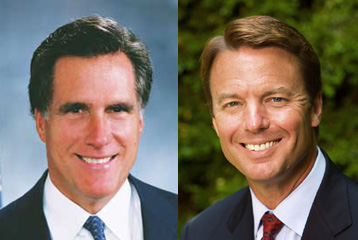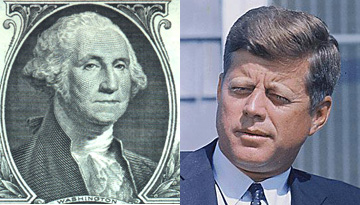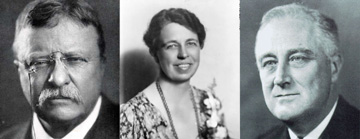Anne Applebaum’s most recent entry to the Jonah Goldberg Brainless Twit Fellowship begins this way:
“A court in country X sentenced a black man who had been severely beaten by white men to six months in jail and 200 lashes.”
How would you react if you read that in a newspaper? Shock, horror, anger at the regime in country X, no doubt. And once you learned that punishing blacks for associating with whites is routine in country X, you might even get angrier. You might call for sanctions, you might insist that country X not participate in the Olympics. You might demand that country X be treated like apartheid-era South Africa.
In fact the sentence is real — almost. When originally published on the CBS News Web site last month, the story concerned a woman, not a black man, and country X was Saudi Arabia.
Here is the real quote:
“A Saudi court sentenced a woman who had been gang raped to six months in jail and 200 lashes.”
Applebaum goes on to admit that there was, in fact, outrage over this incident.
Hillary Clinton led a chorus of Democrats condemning the ruling, and a few editorials condemned it, too. It wasn’t much, but it mattered: Thanks to international pressure, the Saudi king has pardoned the woman.
A “chorus of Democrats” isn’t much to Applebaum, but it seems to have been enough. So what’s her problem?
Her problem is that “the feminist movement” in America was silent.
Instead, we have (fortunately) fought for less fundamental rights in recent decades, and our women’s groups have of late (unfortunately) had the luxury of focusing on the marginal. The National Council of Women’s Organizations’ most famous recent campaign was against the Augusta National Golf Club. The Web site of the National Organization for Women (I hate to pick on that group, but it’s so easy) has space for issues of “non-sexist car insurance” and “network neutrality,” but not the Saudi rape victim or the girl murdered last week in Canada for refusing to wear a hijab.
NOW is a relic. I suspect young American feminists rank it just above the National Christian Woman’s Temperance Union in relevance to their lives.
The fact is, there is no “feminist movement” in America, and there hasn’t been one since the Equal Rights Amendment crashed and burned in the 1980s. There are splinterings of feminisms, cells of activists working for this or that fragment of women’s issues, but there is no movement, and there is no organization that truly represents American feminists. Including NOW.
Applebaum goes on to criticize “reigning feminist ideology,” as explained by anti-feminist Christina Hoff Sommers. (Sommers is one of those right-wing hacks who makes a living constructing liberal strawpersons to bash; nice work if you can get it.) The truth is that there is no reigning feminist ideology in America today. There are many ideologies and notions and ideas drizzled about here and there that can be called “feminist,” but the only “ideology” that ties most American feminists together is an ideal of equal treatment and respect for women. Beyond that, good luck finding consensus on anything.
A few seconds of googling reveals that feminist bloggers did indeed speak out on the Saudi rape trial: See Jessica at Feministing, Echidne, Elaine Vigneault (who argues that this is not a feminist issue, but a human rights issue), and Melissa McEwan. I found these examples on the first search results page. Someone ought to tell Applebaum about web searches.
Rightie blogger Betsy Newmark took Applebaum’s bait and tsk-tsked “feminists” for not speaking up for Saudi women.
These feminists don’t want to give up the glory days when they could point to real discrimination in civil and economic rights for women so they get all excited about car insurance or protesting Wal-Mart for not selling the morning after pill. Anne Applebaum is absolutely correct. A perusal of the NOW web site doesn’t reveal any concern for the way women in some Islamic countries are treated as true second-class citizens. They’re more worried about whether girls are encouraged enough to study math and science. For shame.
Putting aside the fact that being denied a “morning after pill” can have genuinely tragic consequences (you know the Rightie Motto: It’s not a problem until it’s my problem) — the NOW web site is not exactly the alpha and omega of feminism, as I’ve said. But there are some interesting little nuggets buried in their archives. I like this one from August 2002:
On the eve of the Congressional vote on whether to take military action in Iraq, the National Organization for Women stands with a diverse coalition of leaders from the religious, academic, business and labor communities to demand peace. Congress must reassert the integrity of our country’s foreign policy by voting down a dangerous resolution that would give the Bush-Cheney administration broad authority for “pre-emptive strikes” against Iraq and any other country they believe may act against U.S. interests. …
… For Iraqi women, the war carries the danger that their nation will degenerate into an even more militarized society. We know all too well how such an extreme militarized culture in Afghanistan gave rise to a life of violence and oppression for women there. A U.S. invasion of Iraq will likely entail similar dangers to the safety and rights of Iraqi women—who currently enjoy more rights and freedoms than women in other Gulf nations, such as Saudi Arabia.
A news google turned up this story:
IRAQ: “Bad” Women Raped and Killed
By Ali al-Fadhily
BAGHDAD, Dec 18 (IPS) – Women are being killed by militia groups in southern Iraq for not conforming to strict Islamic ways, the police say. And, increased threats from militia groups is driving many women away from their homes.
Basra police chief Gen. Jalil Hannoon has told reporters and Arab TV channels that at least 40 women have been killed during the past five months in the southern city.
“We are sure there are many more victims whose families did not report their killing for fear of scandal,” Gen. Hannoon said.
The militias dominated by the Shia Badr Organisation and the Mehdi Army are leading imposition of strict Islamic rules. The enforcement of these ways comes at a time when British troops have left Basra, the biggest town in the south, to the Iraqi government.
This is from last week’s Guardian:
Freedom lost
After the invasion of Iraq, the US government claimed that women there had ‘new rights and new hopes’. In fact their lives have become immeasurably worse, with rapes, burnings and murders now a daily occurrence. By Mark Lattimer
They lie in the Sulaimaniyah hospital morgue in Iraqi Kurdistan, set out on white-tiled slabs. A few have been shot or strangled, some beaten to death, but most have been burned. One girl, a lock of hair falling across her half-closed eyes, could almost be on the point of falling asleep. Burns have stretched the skin on another young woman’s face into a fixed look of surprise.
These women are not casualties of battle. In fact, the cause of death is generally recorded as “accidental”, although their bodies often lie unclaimed by their families.
“It is getting worse, especially the burnings,” says Khanim Rahim Latif, the manager of Asuda, an Iraqi organisation based in Kurdistan that works to combat violence against women. “Just here in Sulaimaniyah, there were 400 cases of the burning of women last year.” Lack of electricity means that every house has a plentiful supply of oil, and she accepts that some cases may be accidents. But the nature and scale of the injuries suggest that most were deliberate, she says, handing me the morgue photographs of one young woman after another. Many of the bodies bear the unmistakable signs of having been subjected to intense heat.
Read the rest, if you have the stomach for it.
Let me post also a bit of a March 2007 op ed from the Guardian by Haifa Zangana:
Within days of the US troops Operation Law and Order, the “surge” plan announced by the Bush administration on January 10, two courageous Iraqi women, for the first time in the Arab and Muslim world, appeared on TV to speak about their rape by Iraqi troops. The first was 20-year-old Sabrin Al Janabi (the initial alias for Zainab Al-Shummary) and the second was Wajda, a mother of 11 from Tal a’far, the northern city.
The case of Sabrin/Zainab was emblematic of the farce that is Iraqi government. When her tearful statement was aired by al-Jazeera, all media outlets rushed to describe the rape – to fit with the Anglo – American manufactured label of the bloodshed in Iraq – as Sectarian. So the BBC reported the rape saying,
“The 20-year-old married Sunni woman says she was taken from her home in Baghdad to a police station, where she was accused of helping insurgents – and then raped by three policemen.”
Not failing to remind its listeners that, “The Baghdad police are predominantly Shia.”
In no time, Al Maliki – not known for his quick response to Iraqi women’s plight – issued a statement calling the woman a liar and a criminal and claimed that she was not attacked; fired an official who had called for an international investigation and described the rape as a “horrific crime” and ordered rewards for the officers Zainab accused of raping her.
Betsy: NOW was right.
We can all play these “I am more concerned about the rights of women than you are” games, but it’s all just games. We now have little leverage to help the women of the Middle East. The White House pays lip service to women’s rights when it serves some Bushie interest, then turns a blind eye to crimes against women when it doesn’t.
And we can’t very well point fingers at other peoples’ messes when we don’t clean up our own. Molly Ivors writes,
I have no problem adding my voice to the cacophony of those calling the original Saudi ruling appalling. I also decry the treatment of gang-rape and corporate-imprisonment victim Jamie Leigh Jones, who Ace of Spades and Rusty Shackleford have called a liar whose story is “too perfect.” (Wow, imagine if there had been inconsistencies! That would have convinced ol’ Rusty!) NOW also does not mention her on their site, but I do not blame them for her rape and subsequent abuse by a system more interested in keeping Vice-President Meisterburger in fresh colostomy bags than meting out justice.
See also Susie.



